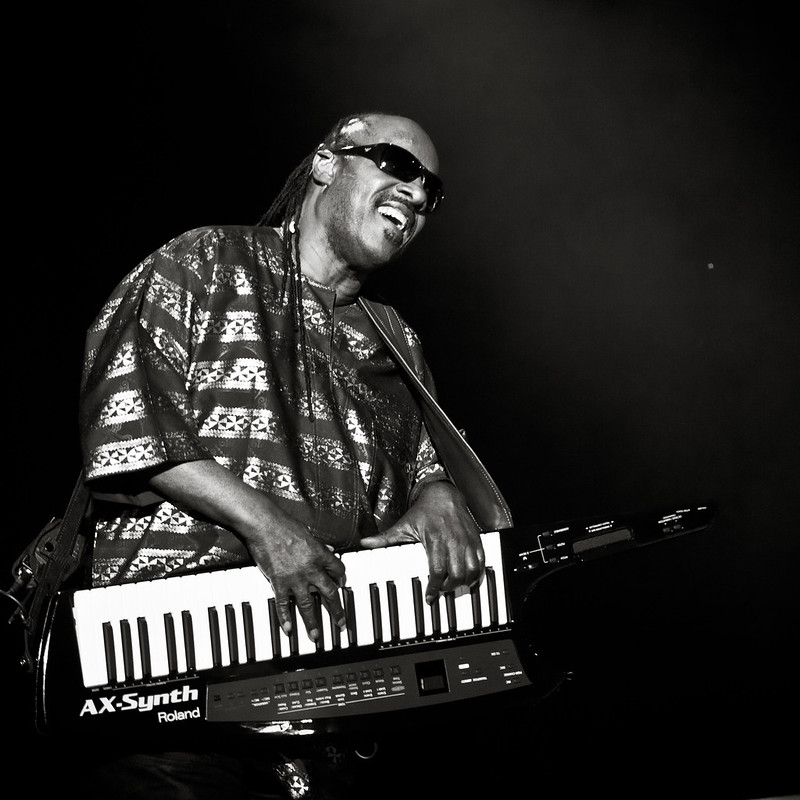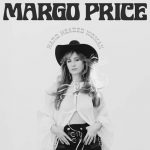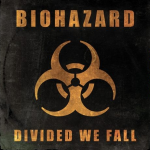
“The Sound of Young America”
That was the slogan of Motown Records, which, especially in the 1960s and 1970s, was a cultural force. Motown founder Berry Gordy, at times, was hesitant to release direct protest songs (especially as singles), fearing it would be commercial suicide. Still, if the artist fought for it, he would generally acquiesce. Because of that, Motown artists have made many contributions to the canon of protest music. Despite his occasional reluctance, Gordy was supportive of the civil rights movement, and Motown made notable contributions to the movement by releasing Martin Luther King speeches on vinyl. Right now, we will consider a sampling of 15 tunes presented in chronological order (one per artist).
Dancing in the Street – Martha and the Vandellas (1964)
On the surface, it is not explicitly political, but this classic tune was adopted as a civil rights anthem during a time of great unrest. In a socio-political context, dancing represented an act of resistance. Additionally, after 9/11, it was included on a list of 165 songs banned by Clear Channel affiliate radio stations, which on the surface seems to be an odd pick. Still, it points to its status as a subtle but radical anthem.
Friendship Train – Gladys Knight & the Pips (1969)
Composed by the legendary Motown songwriting duo of Norman Whitfield and Barrett Strong, it is a rousing call for unity, “no matter what the race, creed, or color.” It also refers to the classic Barry McGuire protest song “Eve of Destruction.”
Abraham Martin and John – Smokey Robinson & the Miracles (1969)
This soulful cover of the 1968 Dion tune is a gorgeous tribute to Abraham Lincoln, Martin Luther King Jr., and John Kennedy, who were all assassinated. It balances a sense of mourning with a hope that the ideals they fought for will live on and change will be realized.
War – Edwin Starr (1970)
Another classic tune by the songwriting duo of Norman Whitfield and Barrett Strong, this anti-war anthem was originally recorded by the Temptations. Appearing on their 1970 album Psychedelic Shack, their version did receive some attention, and many college students wrote to Motown requesting that the song be released as a single. The label was concerned about a politically explicit single being linked with the legendary group, so instead, they had the lesser-known Starr record it. Starr’s version had more of an edge, and his passionate vocals well conveyed the message. It also became a massive hit and a protest classic.
Message from a Black Man – The Spinners (1970)
Yet another tune on this list, originally recorded by The Temptations on their 1969 album Puzzle People. This black empowerment tune also refers to James Brown’s 1968 anthem, “Say It Loud – I’m Black and I’m Proud.”
Stoned Love – The Supremes (1970)
The Supremes weren’t known for being a political group, but at times their music did touch upon social themes, such as on this hit, which was recorded after Diana Ross left the group. The tune was a powerful anti-Vietnam War protest, which includes the relevant lyric: “Put the present time at hand. Aww yeah–and if you’re young at heart. Rise up and take your stand.”
Ball of Confusion (That’s What The World Is Today) – The Temptations (1970)
The legendary vocal group has no shortage of socially conscious tunes, especially during their psychedelic era led by the production and songwriting talent of Norman Whitfield. Probably their most well-known protest song, it covers themes of racial tensions, gun violence, drug abuse, and other social ills.
What’s Going On – Marvin Gaye (1971)
The title track from the classic album is one of the most yearning protest songs ever written. The tune was co-written by The Four Tops’ Renaldo Benson. Benson’s inspiration was the news reports of police brutality that were happening at student anti-war protests. Gaye had a personal connection; his brother Frankie was a Vietnam veteran who returned home and was struggling to adjust to new realities. Gaye had to butt heads with Berry Gordy to get the song released as a single, but thankfully, he stuck to his guns and won that battle. It is a timeless classic that continues to be relevant.
Smiling Faces Sometimes – The Undisputed Truth (1971)
As was common practice for Motown for multiple artists to record the same tune in quick succession, this tune was originally recorded by The Temptations, but it became a massive hit for The Undisputed Truth. The song is an example of how the personal can be political, speaking up against backstabbing friendships. The lyrics are also an apt description of phony politicians, even if that wasn’t necessarily the intent.
My People…Hold On – Eddie Kendricks (1972)
This is the title track of the sophomore solo album by the former member of The Temptations. The African percussion not only gives the tune a different dynamic than many of the Motown tunes of the day, but it also complements the song’s empowering message. It was also notably sampled on the Erykah Badu song “My People.”
You Haven’t Done Nothin’ – Stevie Wonder (1974)
Featuring background vocals from the Jackson Five, this funky anti-Nixon tune is from the album Fulfillingness’ First Finale. Because the lyrics stop short of naming the president, it continue to stay relevant. The lyrics can apply to any number of political leaders.
Fight The Power – Public Enemy (1989)
This iconic protest anthem was written for the classic 1989 Spike Lee film Do the Right Thing (which was released through Motown). Chuck D has referred to rap music as “the Black CNN”, and “Fight The Power” is an exceptional display of hard-hitting reporting. Inspired by the 1975 Isley Brothers’ song of the same name, Chuck D explored similar themes.
Our New National Anthem – Donnie (2002)
Off the debut album The Colored Section by the Neo-Soul artist, this is an overlooked gem (Donnie doesn’t even have a Wikipedia page). This socially conscious tune tries to balance pride in country with the ongoing pattern of systemic racism (“eventually the race dilemma we’ll fix”).
Soldier – Erykah Badu (2008)
Even though Motown’s heyday may have been the ’60s and ’70s, it has continued to plug away with notable artists such as Erykah Badu. Off the album New Amerykah Part One (4th World War), it is a modern-day movement tune addressing both marches and picket lines.
The Bigger Picture – Lil Baby (2020)
in recent times, the Motown roster features many hip-hop artists, which is a natural part of the evolution of a label that has been described as the “sound of young America”. It shouldn’t come as a surprise that during 2020, many rap artists stepped up to help compose the soundtrack to the Black Lives Matter Movement. This may be the most notable contribution. In the lyrics, Lil Baby blends personal reflection with broader societal commentary, highlighting the struggles faced by the Black community while emphasizing the importance of unity and activism.
Also, check out the playlist featuring the songs on this list and a few others.


